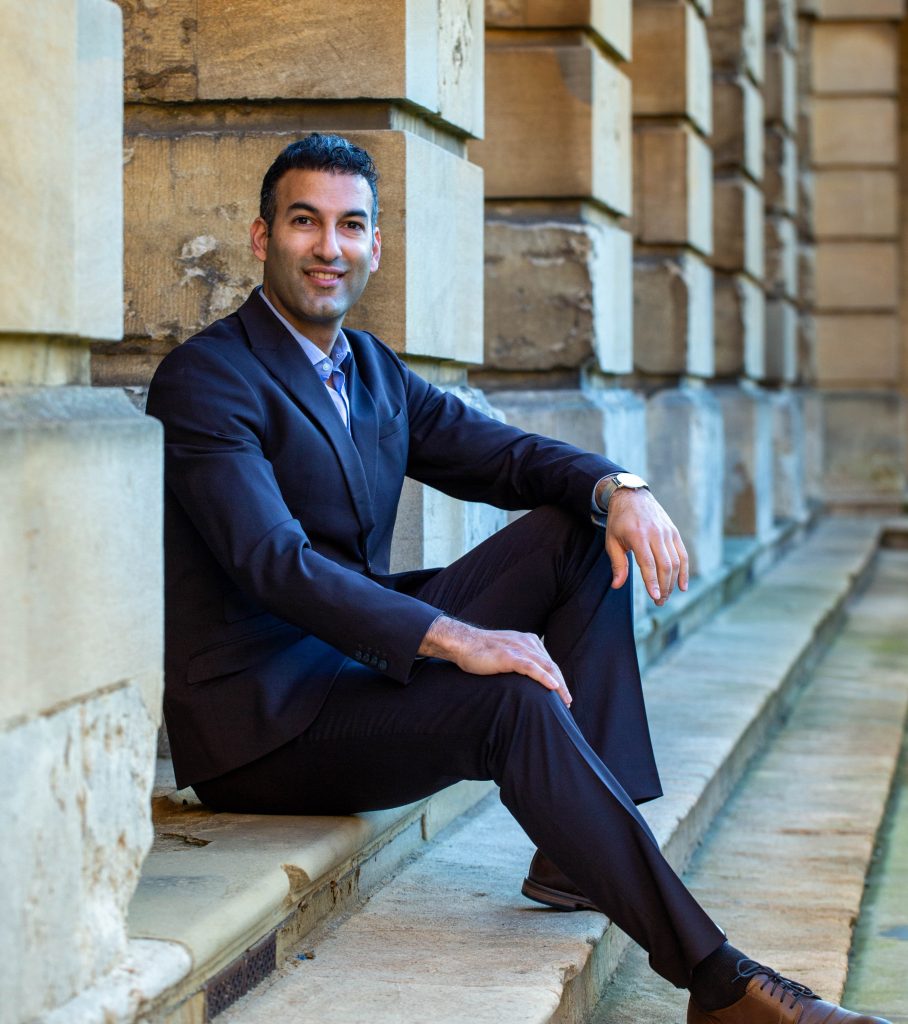Introduction
Before starting his Junior Research Fellowship at Queen’s in 2022, Farsan worked at Maastricht University and Lund University. He holds a DPhil in International Relations from the University of Oxford, an MA in Global Affairs from Yale University, and a BSc in Management from the London School of Economics and Political Science (LSE). Further information on Farsan’s background is available at: www.farsanghassim.com/bio.
Farsan has also worked as a consultant in the private, public, and civil society sectors – among others, with Bain & Company, the United Nations, the European Parliament, the German Foreign Office, and various civil society organizations. Find out more about his consultancy work at: www.farsanghassim.com/consultancy.
Teaching
Farsan has developed courses, taught seminars, and supervised theses in Political Science, International Relations, and quantitative methods, among others, at the University of Oxford, Maastricht University, and for the German National Academic Foundation. Learn more about his teaching and supervision at: www.farsanghassim.com/teaching.
Research
Farsan’s research concentrates on global governance and survey methodology. His work has been published in the British Journal of Political Science, Perspectives on Politics, International Studies Quarterly, The Review of International Organizations, and elsewhere.. Some of the key questions he focuses on are: Why and how do citizens worldwide want transnational issues to be governed? How can we design surveys to obtain answers that reflect respondents’ underlying attitudes, knowledge, and behavior? Find out more about Farsan’s work at: www.farsanghassim.com/research.
Publications
For the full list of peer-reviewed academic publications, please visit: www.farsanghassim.com/research.
For popular science articles and opinion pieces, please go to: www.farsanghassim.com/media.
